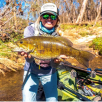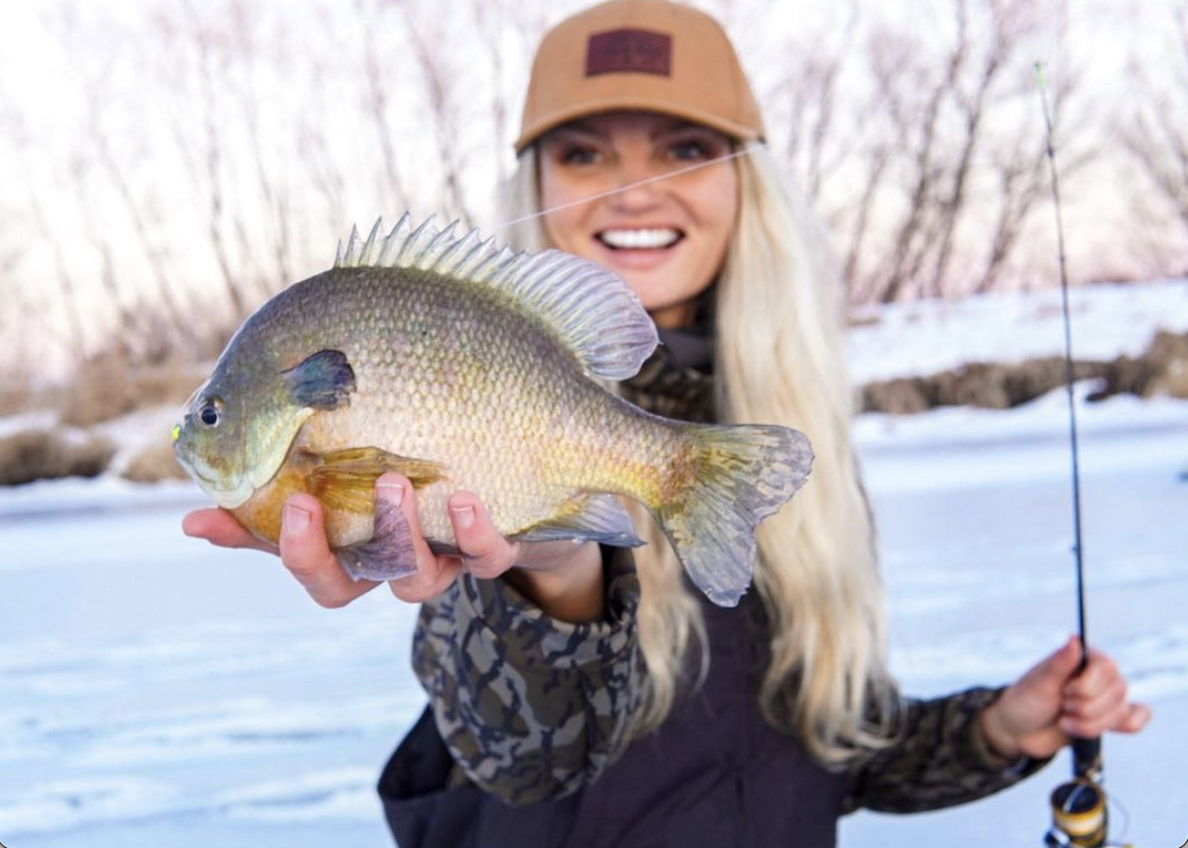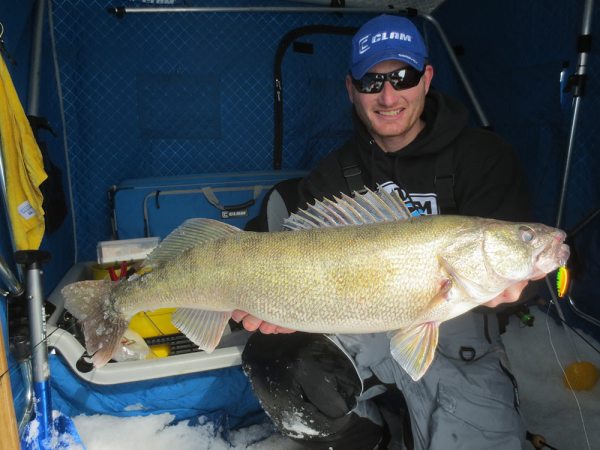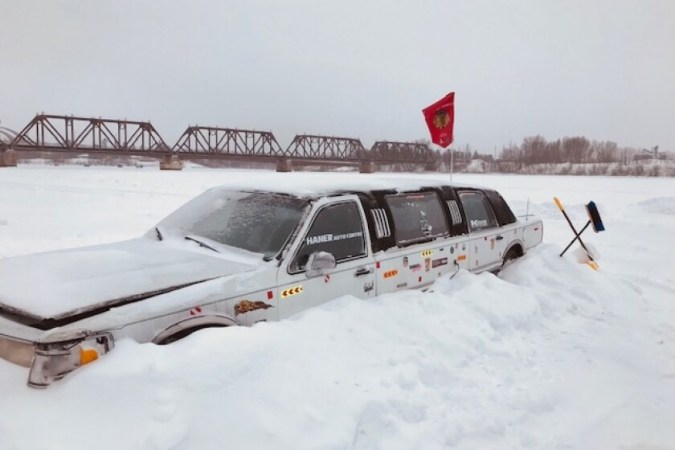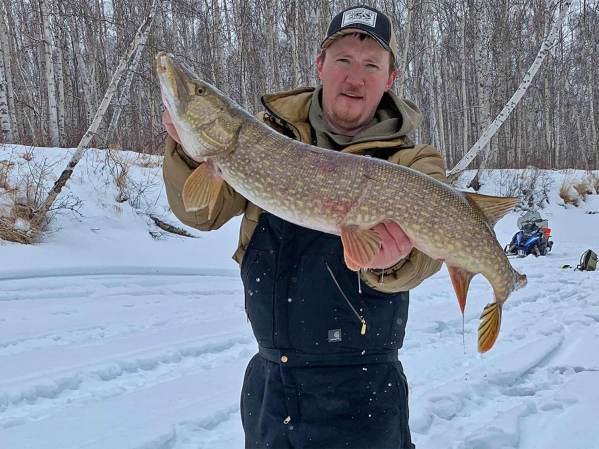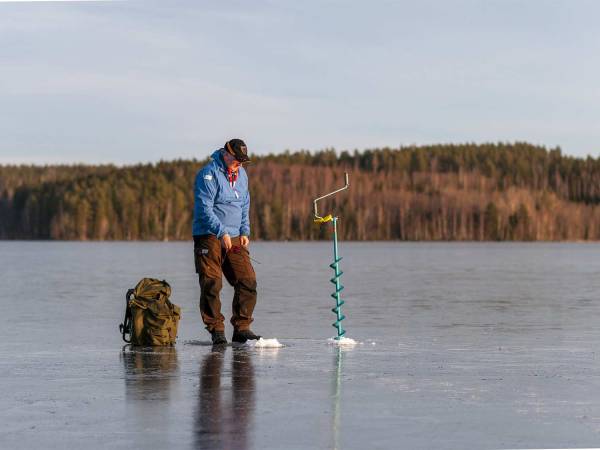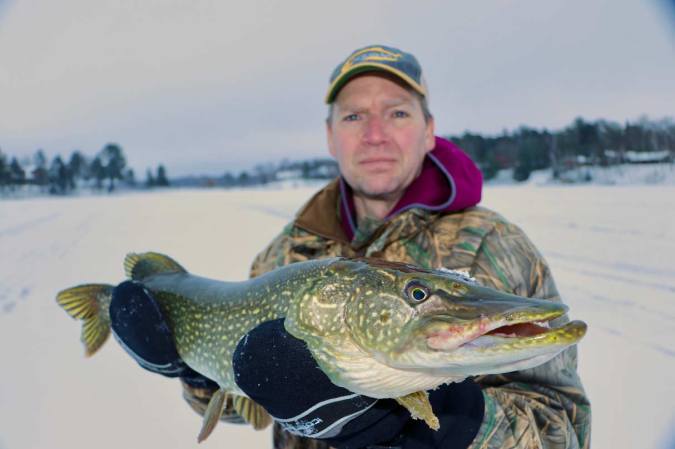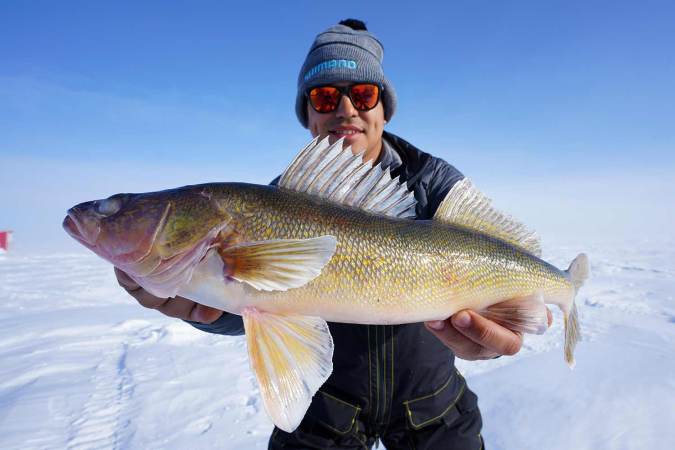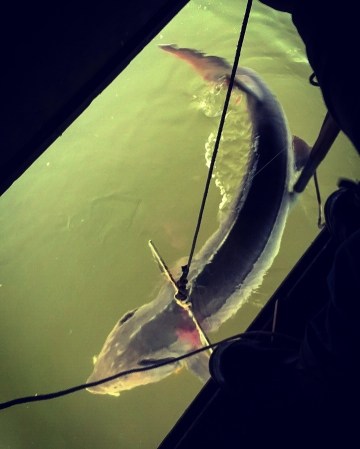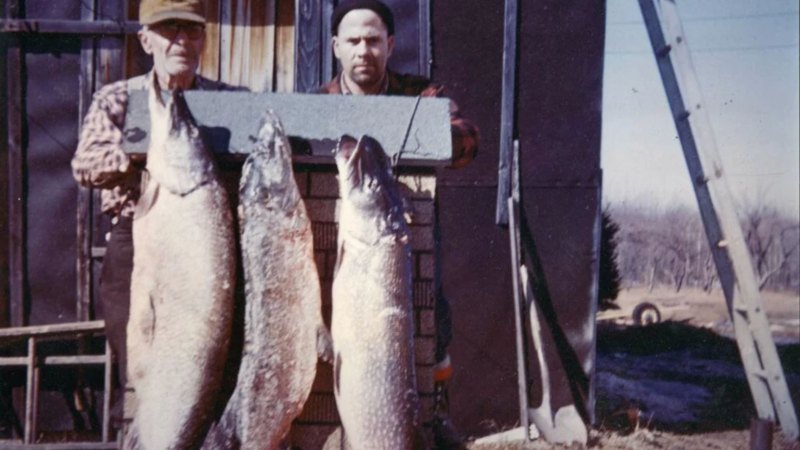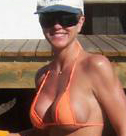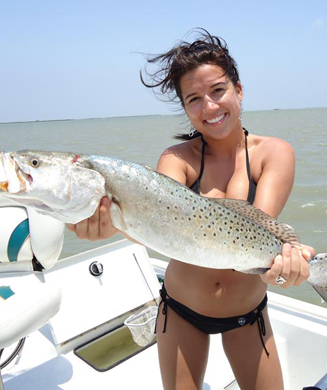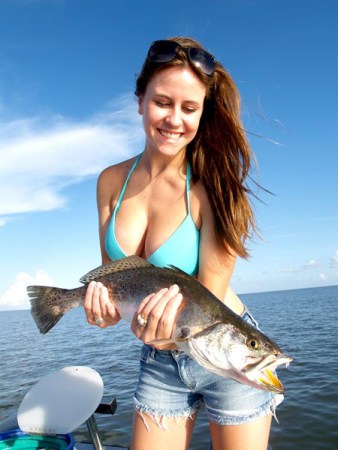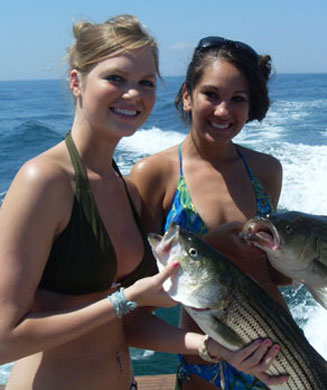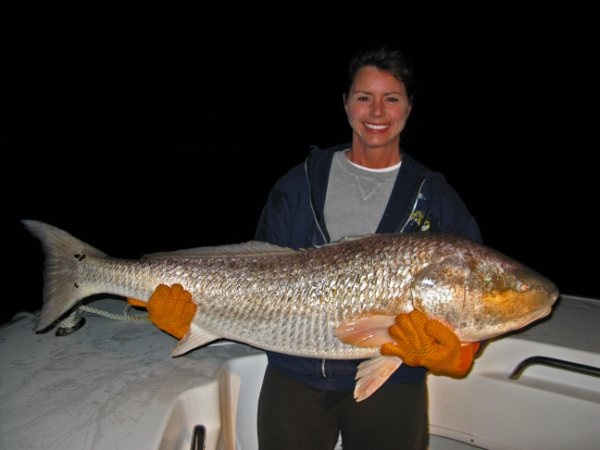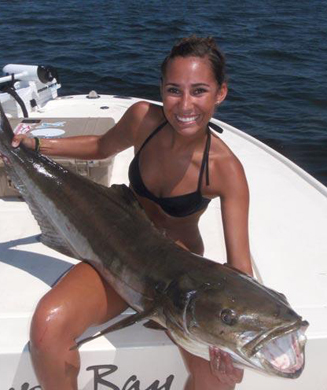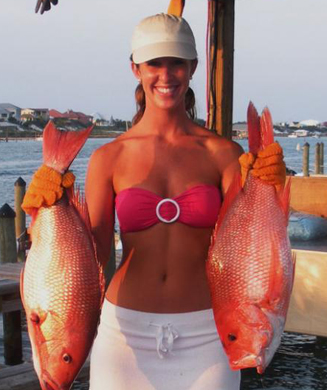We may earn revenue from the products available on this page and participate in affiliate programs. Learn More ›
Winter is coming, and many freshwater anglers are looking forward to ice fishing. If you’re not from Wisconsin, Michigan, or Minnesota, you might not be familiar with the temporary colonies of ice fishing shacks that form on frozen lakes up north. But that’s no reason not to join the party.
Traditionally, these core ice fishermen will drive campers, fish houses, and DIY shacks onto the ice for the winter. They dot the lake contours and fill the basins until springtime arrives and the ice begins to melt. There are also plenty of weekend warriors who walk tents onto the frozen lakes to fight the sting of frigid temperatures and whipping winds. Others just sit on a five-gallon bucket and stick it out in the open, clutching their rod and a Thermos of coffee, trying to stay warm.
If you’re a transient angler (like me), you’re going to need a hybrid of all three of these ice fishing options. I like to set up on a lake for a few days or even a week. I can’t tow an ice shack around the country, but I also don’t just want a small tent more suited for a day trip. I need something I can live out of comfortably.
If you are up for an adventure this winter, here are the necessities you will need to set up a proper fishing camp on the ice.
Pick a Good Ice Fishing Shelter
A pop-up tent is a must-have. I would recommend a thermally-insulated tent, especially on the ice where temperatures can plummet to below zero. Insulated shells will retain heat better than standard ones, but they also will absorb moisture. The Vortex Cabin from Otter Outdoors is a great option, but if you want a tent that can battle the harshest element, consider an Artic Oven—it’s the best. I always carry extra stakes too. You’ll need these on windy days, or as backups if you lose any. Be sure to bring a cordless drill and buy an ice anchor adaptor. This will save you from having to hammer stakes into the ice.
Cots are essential for ice fishing camp. They are easy to transport and get you off the cold ice, which is critical. You should also consider a sleeping pad. They will keep you much warmer than laying directly on the cot, and also, you will sleep much more comfortably.
Investing in a synthetic sleeping bag with an excellent warmth-to-weight ratio is a must. There will be a ton of moisture in your tent, and down-insulated bags will absorb it. A synthetic bag will not. Choose a bag with a temperature rating that suits the conditions where you’ll be fishing. Just recognize that a temperature rating on a sleeping bag is for survival to that temperature, not comfort. I would also choose a sleeping bag that has a water- and wind-resistant exterior.
Putting down a floor will help insulate your tent and also keep your feet warmer, because your boots won’t be in direct contact with the ice. This can be done by using interlocking foam mats and covering the area of your camp. Closed cell foam mats are best because they don’t retain moisture. Also, bring pieces of plywood to cover your fishing holes at night or when you’re not using them, so you don’t accidentally step in one.
Read Next: Best Ice Fishing Shelters
Staying Warm Is Critical While Ice Fishing
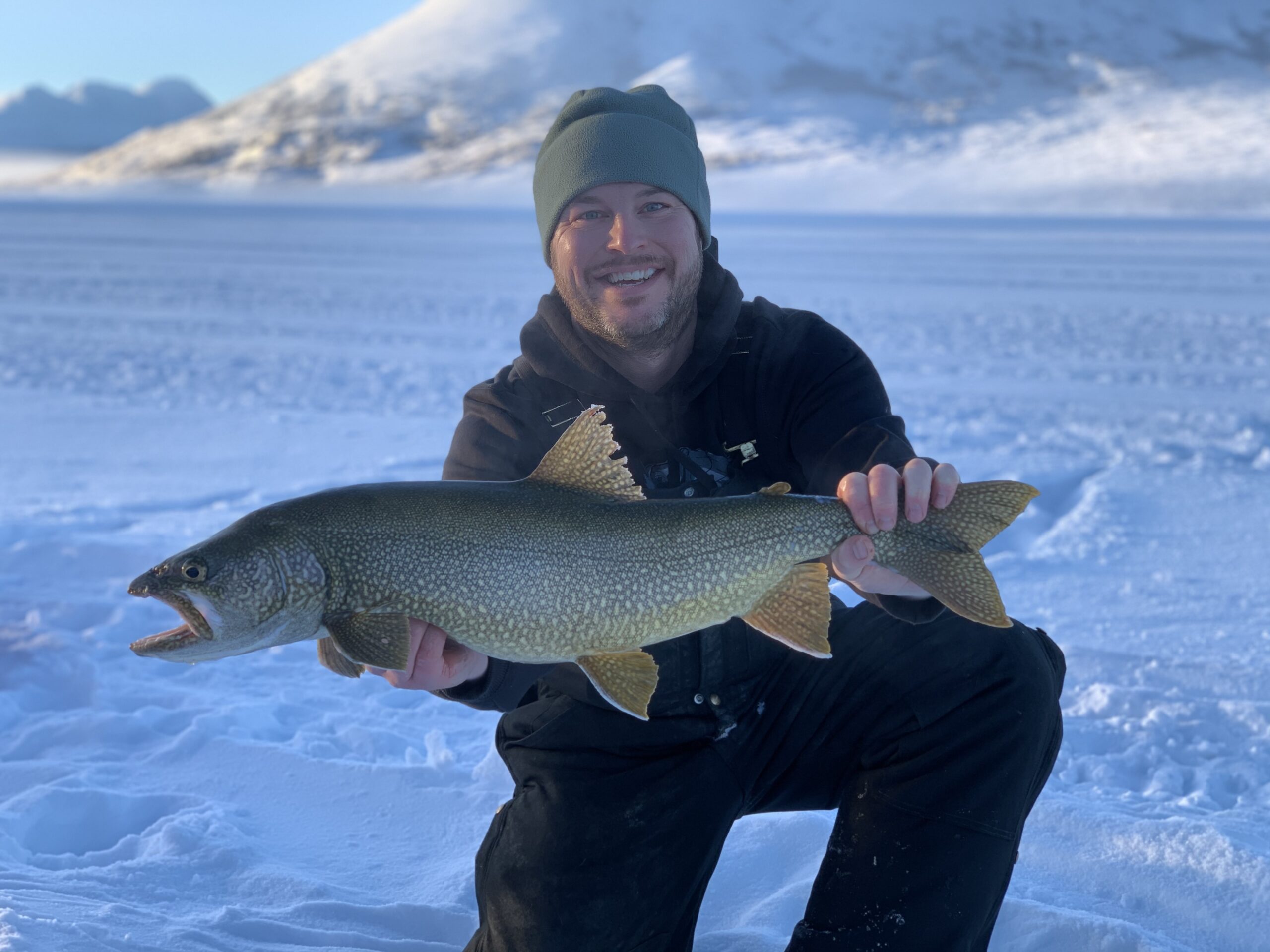
Having a propane heater in camp will make you much more comfortable, especially if you have to leave the comfort of the tent for any reason. But be sure to vent your tent properly because carbon-monoxide poisoning is a real hazard. It could kill you if you don’t take proper precautions. I don’t recommend keeping the heater on while you sleep. If for some reason the vent slips closed, you and everyone in the tent could die. Instead, layer up at night and make sure you have a warm sleeping bag. Also, it’s smart to purchase a carbon-monoxide sensor that will alert you if oxygen levels get too low.
Read Next: 7 Ways to Survive on the Ice
For clothing, you need warm base layers and waterproof outer shells. You won’t be sweating, so you don’t need base layers that breathe, which makes wool a smart option. Insulated bibs and a parka are also necessities. Basically, you want to take every piece of warm clothing you own and put it on. Waterproof gloves are ideal, too.
The Comforts of Home in an Ice Fishing Camp
Bringing a solar panel and a power bank allows you to charge electronics, and keep you connected to the outside world (but only if you want that). Goal Zero makes a great lightweight, portable power bank called the Yeti. You can also purchase a solar panel for the bank.
Everyone has to use the bathroom, and if you aren’t close to shore it’s going to be inconvenient to walk all that way when nature calls. Pack in a smaller one-person fishing tent and set up a makeshift toilet inside. Use a five-gallon bucket with a plastic bag inside it, and set a toilet seat on top (the medical ones they use in hospitals are ideal). Now you have a portable toilet that you can easily remove waste from. You will need toilet paper and wet wipes, but make sure to keep those wet wipes stored in an inside pocket or in your sleeping bag at night, or else they will freeze.
Keep Your Fresh Water from Freezing
Keeping your potable water from freezing overnight is another factor to consider at ice fishing camp. If you have a small, portable stove you can boil it, or just use an insulated cooler. I use a single-burner propane stove. This allows me to boil water for freeze-dried meals, or cook canned goods. Bring plenty of energy bars and food that doesn’t need to be cooked to supplement meals. You will need to eat regularly because spending time in the cold—yes, even if you’re just sitting there—will cause your body to burn calories at a faster rate. You also need to drink plenty of water because even though you may not feel thirsty, you still need to stay hydrated.
